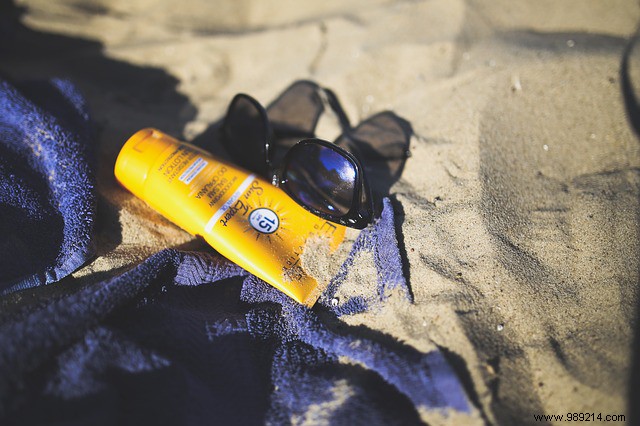
With the approach of the beautiful days, we rejoice at the idea of sporting a nice tan. However, we are not unaware that exposure to the sun is not without risks. Various kinds of illnesses can occur, which is why it is essential to protect yourself well.
Sun exposure primarily affects the skin, but it can also have adverse effects on the eyes. The sun is tolerated to different degrees depending on each person's skin type. Thus, if you have black, mixed-race or Mediterranean-type skin, you are lucky enough to be able to wear a nice tan without sunburn. On the other hand, if you are brown, red or blond with light eyes, sunburn can be daunting.
The main factors of the harmful effects of the sun are ultraviolet or UV rays. You should know that there are 3 different types of UV:UVA, B and C. The first or long-wavelength UV causes sun allergies, UVB is responsible for skin aging and UVC is the cause of skin cancer. These are generally filtered by the ozone layer. Sunburn is caused by UVB rays. It is an inflammation of the skin that appears a few hours after exposure to the sun.
Generally, it is enough to apply a cool compress and a healing cream to the burned area for relief, but they are still very harmful to the skin. If you do not have any of these products in your medicine cabinet, apply toothpaste, it will relieve you quickly. In some cases, it is possible that the skin is burned in the second degree and it is therefore strongly advised to go to see your doctor.

One in ten women is affected by skin allergy, more specifically solar lucite. It is manifested by an eruption of pimples on places exposed to the sun, in particular the legs, forearms or even the neckline. Generally, the doctor prescribes an antihistamine to make these unsightly itchy pimples disappear.
Various types of allergy can also affect the skin such as solar urticaria or dermatitis actinitis. In addition, strong exposure to the sun accelerates the aging of the skin. The latter loses its elasticity, wrinkles and other spots may appear.
Eventually, exposure to the sun can cause skin cancer. In 90% of skin cancer cases, these are carcinomas that affect an area of skin exposed to the sun. In the majority of cases, they are resolved by surgery.
On the other hand, in the case of a melanoma, the skin cancer spreads quickly to other organs of the body. To protect yourself from the harmful effects of the sun, the best thing is still to respect a few daily gestures. For example, you should avoid direct exposure to the sun's rays between noon and 4 p.m., it is during this interval that the sun's rays are the most dangerous.
In the event of exposure to the sun, remember to cover yourself with a hat, sunglasses and loose clothing that covers your body. And do not ignore sunscreen with a high protection factor to protect yourself properly, without forgetting to renew the applications. Be particularly vigilant with children!